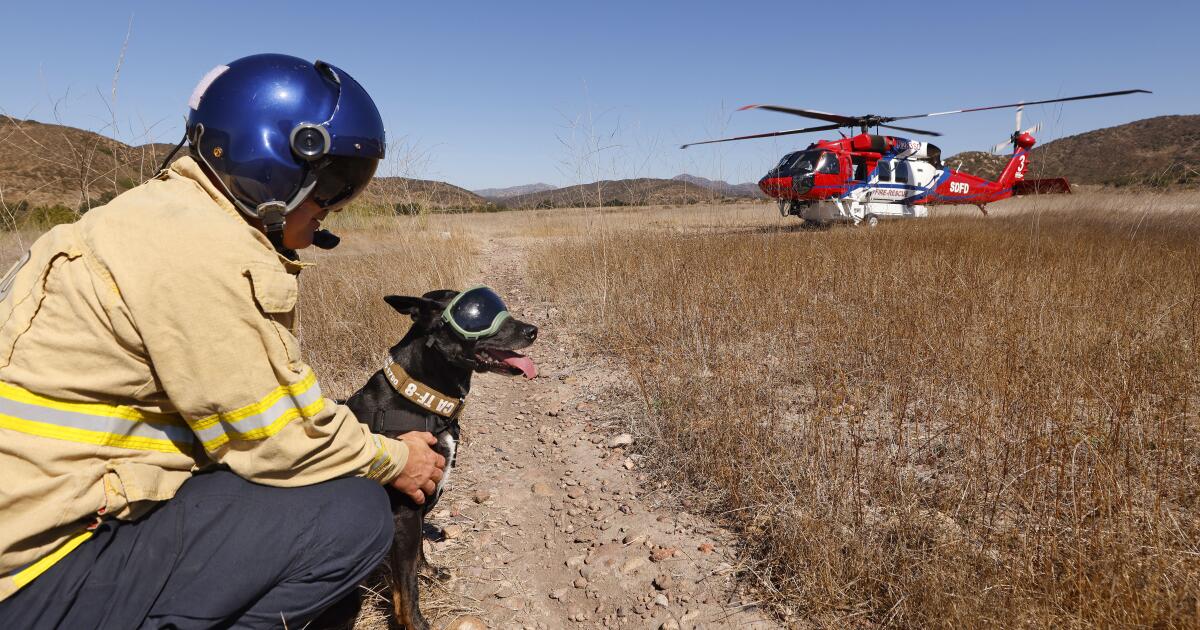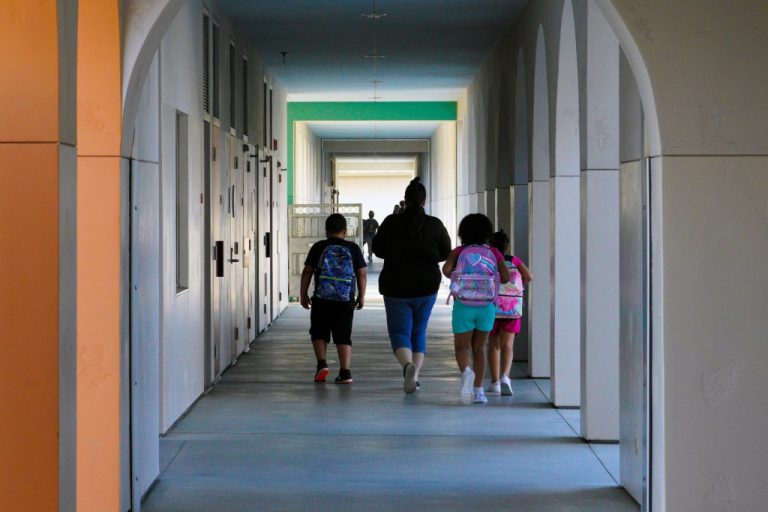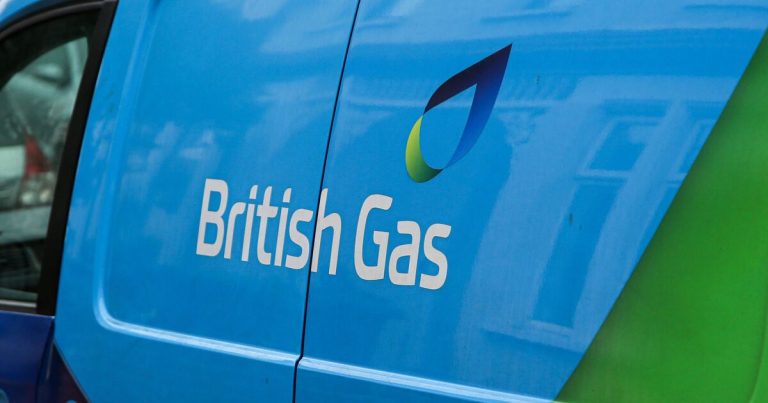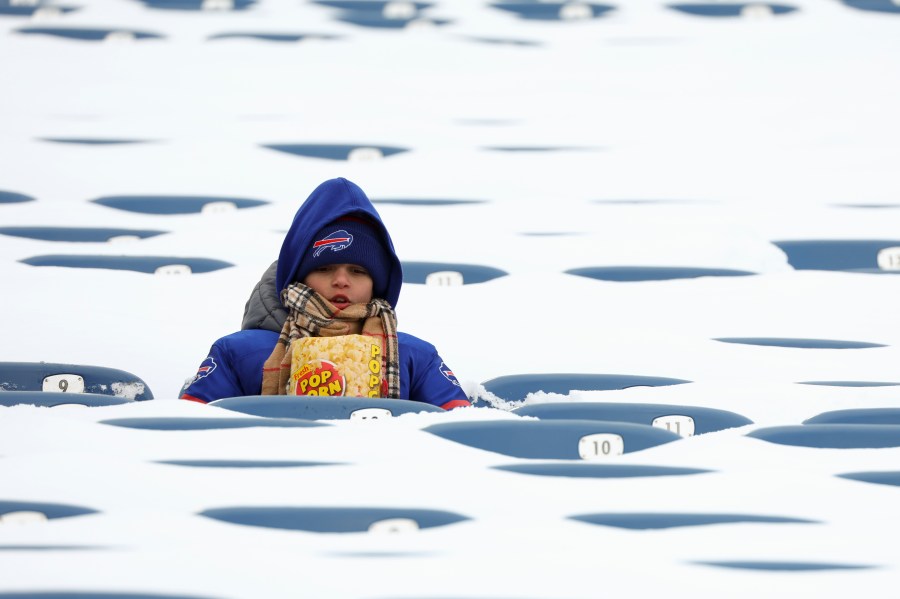
It was noisy, with the chopper blades creating their own wind, as a search-and-rescue dog named Cory and his handler were lifted by a hoist into a hovering helicopter. The pup didn’t let any of it faze him.
Wearing googles to protect his eyes, Cory was strapped onto the chest of his trainer, San Diego Fire-Rescue firefighter Chad Arberg, as they and Rescue Medic Steve Vandewelle were pulled into the air by a cable. It was the first hoist for the dog and Arberg.

San Diego Fire-Rescue’s Copter 3 hoists Helicopter Rescue Medic Steve Vandewalle and firefighter Chad Arberg, with search dog Cory strapped to his chest, during a training exercise.
(K.C. Alfred / The San Diego Union-Tribune)
The exercise — designed to prepare Cory for future missions when he might need to be dropped off by a helicopter — went off without a hitch.
“He did fantastic. He’s a trooper,” Arberg said later. “I think I was more nervous than he was.”
Cory is trained to use his nose to find survivors trapped in the rubble after an earthquake or under dirt and rocks if there’s a cliff collapse. He also can be deployed in advance of a forecasted hurricane — so that he’d be ready to go to work when the storm is over.
Arberg and Cory are members of the Federal Emergency Management Agency’s San Diego Urban Search & Rescue California Task Force 8, which can be activated to respond to natural and human-made disasters.
“We try to condition the dog to as many strange environments as possible to get the dog acclimated so they can adapt to these weird experiences,” Arberg said.
The idea is to expose them to conditions they might find during a mission — including needing to be dropped at a site by helicopter.
During the hoist exercise last month, Arberg and Cory were flown from Montgomery-Gibbs Executive Airport and dropped off in the Sycamore Canyon Open Space Preserve east of Scripps Ranch. Copter 3 returned, sent Vandewelle down to the ground by cable and then flew in a circle while the trio got hooked together before hoisting them into the air.
They flew for awhile hanging off the cable before they were pulled up and entered through the open door of the chopper.
Cory didn’t get spooked by the noises or the hoist, or even the flight itself, which was only his second time in a helicopter.
“I built a relationship with the dog over the years so I have a lot of confidence in him,” Arberg said. “We train around loud noises like jackhammers. He is able to soothe himself, and we soothed each other on that hoist.”
The two have been paired up for about 3½ years. Cory the rescue dog is a rescue himself — he ended up in an animal shelter in Albuquerque, N.M., after his adoptive family found him too high-energy to handle.
Someone there thought he’d make a good working dog, and he eventually was trained at the National Disaster Search Dog Foundation.

San Diego firefighter Chad Arberg flies with Cory in Copter 3.
(K.C. Alfred/The San Diego Union-Tribune)
Cory is a “full fledged mutt,” a mix of cattle dog and Staffordshire bull terrier and a bunch of other breeds, and thought to be about 5 or 6 years old, Arberg said.
So far, the only mission Cory has been on came after a cliff collapsed in Encinitas a few months ago. Luckily, no one was found beneath the rubble. Cory is trained to find survivors; other dogs are trained to find bodies.
When he’s working, Cory doesn’t wear a collar to avoid getting snagged on debris.
“The bottom line is he is a 48-pound dog and he could check an area much faster than our high-tech equipment,” such as thermal imaging cameras or sensitive sound equipment, Arberg said.
He is also trained to search open areas where a hiker or someone with dementia could get lost, as well as conduct building searches.

Helicopter Rescue Medic Steve Vandewalle, right, prepares firefighter Chad Arberg along with search dog Cory to be hoisted by the helicopter.
(K.C. Alfred / The San Diego Union-Tribune)
With Arberg assigned to the fire department’s recruiting unit, Cory spends a lot of time doing demonstrations at high schools and college campuses. “He’s a good ambassador,” Arberg said.
Sometimes students will volunteer to be pretend victims and hide in cupboards or other spaces. Even in a room full of students, the dog can somehow smell for someone he doesn’t have access to — and will signal when he finds the victim.
“He looks like a goofy puppy running along,” Arberg said, “but he’s cataloging everyone in the room.”
Staff photojournalist K.C. Alfred contributed to this report.








